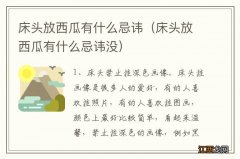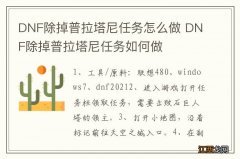1、求happen、occur、take place 三者区别,要具体 。happen作“发生、碰巧”解,一般用于偶然或突发性事件
What
happened
to
you?
occur作“发生、想到、突然想起”解,表示偶然发生时,其意义相当于happen
What
has
occurred?
(=What
has
happened?)
take
place
表示“发生、举行、举办”,一般指非偶然性事件的“发生” , 即这种事件的发生一定有某种原因或事先的安排
Great
changes
have
taken
place
in
our
hometown
during
the
past
ten
years.
建议你买本《英语高考必备》,那上边很详细 。
happen:指偶然性;发生,碰巧
i
happened
to
be
there
.
我碰巧在那里 。
take
place
发生;通常指经过安排的
when
will
the
wedding
take
place
?
婚礼什么时候举行?
occur只是单纯的发生
the
姬恭灌枷弑磺鬼委邯莲accident
occured
on
sunday
.
而hold跟其余几个的不同就在于句子的主语,其他三个的主语是“事” , 而hold的主语时人,它的意思是举办 。

文章插图
2、occur和happen的区别一、释义广泛性不一样
1、occur
英 [əˈkɜ:(r)] 美 [əˈkɚ]
vi.发生;出现;闪现
2、happen
英 [ˈhæpən] 美 [ˈhæpən]
vi.发生;出现;碰巧;偶然遇到
二、变形词不一样
1、occur
第三人称单数: occurs 现在分词: occurring 过去式: occurred 过去分词: occurred
2、happen
【occurhappentake的区别,求happen、occur、take place 三者区别,要具体。】第三人称单数: happens 现在分词: happening 过去式: happened 过去分词: happened
三、同义词解析不一样
1、occur v. [正式]发生
〔辨析〕可用于偶然事件或计划之事,可与 happen 换用 。
〔例证〕The earthquake occurred/happened at dawn.
地震发生在黎明时分 。
2、happen v. 发生
〔辨析〕普通用词 , 多用于偶然事件 。
〔例证〕The accident happened at 5 o'clock.
事故发生在5点钟 。
happen指“偶然发生”时,主语为“事”;当主语是“人”时,意为“碰巧” 。
occur 指“发生”时可与 happen 换用 , 但后接to sb./sth.时,两者含义不同:happen to sb./sth. 指不好的事情发生在某人(物)身上;occur to sb./sth. 指“某种思想等呈现于某人的知觉中” 。

文章插图
3、happen,break out,occur,take place都是“发生”的意思,问下它们的区…occur,happen,take place和break out 都表示发生
occur和happen最显著的区别是:前者是文学书面用语,很正式.后者比较常用,较口语化.这两个词都有偶然发生的意思,没有经过筹划的~
take place 常用于有计划的事情的发生.
如:The funeral took place on 24 June.
葬礼已于6月24日举行.
break out 一般是指激烈的,严重的暴力,骚乱等大事爆发.
如:Fire broke out last night .

文章插图
4、happen,take place,come about,occur的区别分类:教育/科学 >> 外语学习
解析:
take place, happen, occur, e about和break out用法区别
这些词或短语都有“发生”的意思,但用法各不相同,区别如下:
(1). take place 表示“发生、举行、举办”,一般指非偶然性事件的“发生” , 即这种事件的发生一定有某种原因或事先的安排,例如:
Great changes have taken place in our hometown during the past ten years.
The Olympic Games of 2008 will take place in Beijing.
(2) .happen作“发生、碰巧”解,一般用于偶然或突发性事件,例如:
What happened to you? (一般不说:What did you happen?)
Maybe something unexpected happened.
I happened to see him on my way home.
= It happened that I saw him on my way home.
(3). occur作“发生、想到、突然想起”解,其意义相当于happen , 例如:
What has occurred? (=What has happened?)
A big earthquake occurred (=happened) in the south of China last month.
It occurred to me that she didn’t know I had moved into the new house.
(4). e about表示“发生、产生”,多指事情已经发生了,但还不知道为什么,常用于疑问句和否定句 , 例如:
When Mother woke up, she didn’t know what had e about.
I’ll never understand how it came about that you were late three times a week.
Do you know how the air accident came about?
(5). break out意思为“发生、爆发”,常指战争、灾难、疾病或者争吵等事件的发生,也可以表示突然大声叫喊等,例如:
Two world wars broke out last century.
A fire broke out in the hospital in the mid-night.
After the flood, diseases broke out here and there.
She broke out, “That is too unfair!”

文章插图
5、同义词辨析 知识讲解 occur,happen,和take place的区别建议你买本《英语高考必备》 , 那上边很详细 。
happen:指偶然性;发生,碰巧
i
happened
to
be
there
.
我碰巧在那里 。
take
place
发生;通常指经过安排的
when
will
the
wedding
take
place
?
婚礼什么时候举行?
occur只是单纯的发生
the
姬恭灌枷弑磺鬼委邯莲accident
occured
on
sunday
.
而hold跟其余几个的不同就在于句子的主语 , 其他三个的主语是“事”,而hold的主语时人,它的意思是举办 。
happen:
普通用词,泛指一切客观事物或情况的发生,强调动作的偶然性 。
occur:
较正式用词,可指意外地发生 , 也可指意料中的发生 。
chance:
侧重事前无安排或无准备而发生的事,特指巧合 。
take
place:
多指通过人为安排的发生 。


















